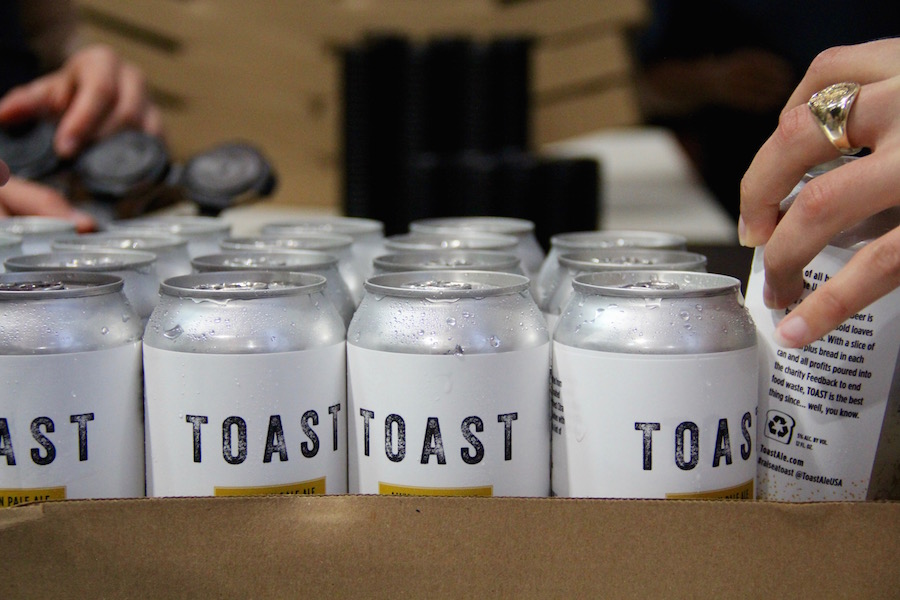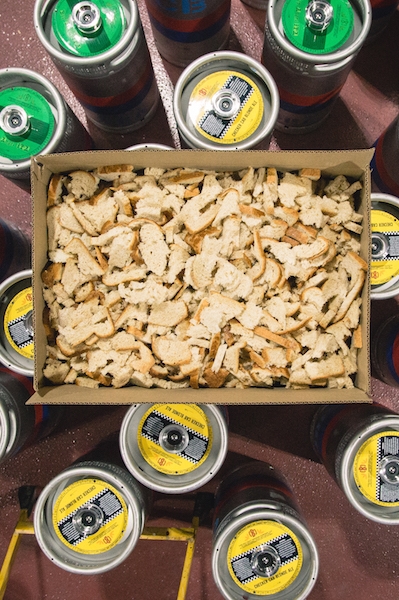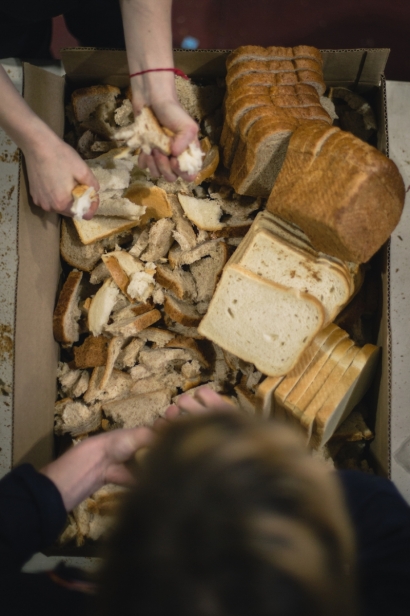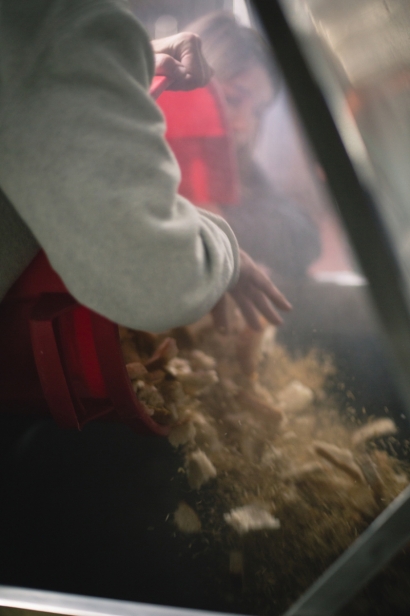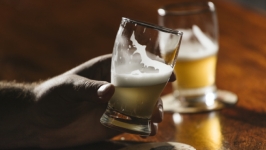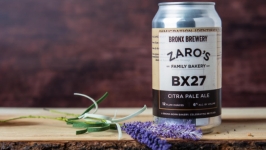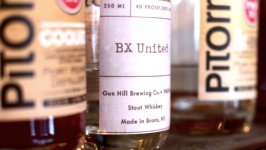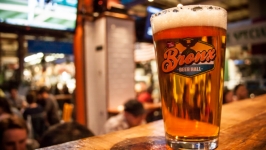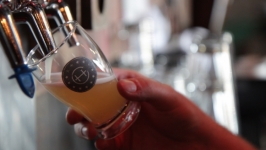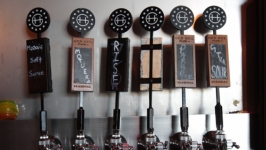Toast Ale Turns Surplus Loaves Into A Tasty Brew
A Babylonian-based recipe became the basis for a beer brewed with bread in the Bronx. Cheers! Too much alliteration for you? Madi Holtzman, director of operations for Toast Ale USA, has not gotten tired of saying it, and she predicts she never will.
Toast Ale, a brewing company founded in London by Tristram Stuart, is committed to alleviating food waste. Historically, beer was developed in times of scarcity as a way to preserve precious calories and sugars in a loaf of bread. Today, an abundance of surplus food inspires Toast Ale to recycle the old way. At the top of the food waste hierarchy, bread is made precious again.
The company that created Toast English Pale Ale has hopped across the pond to create an American Pale Ale, sourced and produced locally. During the transition, Holtzman, a native New Yorker, spent the summer of 2016 calling microbreweries in the New York City area looking for a partner in production.
Serendipitously, Pat Green, owner of Chelsea Brewing Company had turned on a radio special that discussed Toast Ale and the positive impact it was having on London’s pub and landfill scenes. It was destiny. Chelsea Brewing has similar environmental motivations and uses state-of-the-art equipment to actively reduce water usage and maximize energy output. They agreed to contract brew for Toast, supporting its mission of reducing food waste.
A year later, in March 2017, on the night before Toast Ale NY’s pilot batch was scheduled to brew, Holtzman expected to hear the rumbling of a truck coming down the road; instead, she heard the ominous ringing of the telephone. On the line, the apologetic voice of the owner of the bakery Toast had contracted to supply their initial 250 pounds of surplus bread, saying it was no longer available. The first step, to soak the bread, was slated to start at 7:30am the next morning, and there was no bread.
After hanging up, Holtzman had to rally fast. Calling bakeries all over the New York area, she pieced together enough bread donations to arrive at Chelsea Brewing in time to be ripped into small pieces and mixed with hot water—a sleepless but successful night.
Toast now collects its bread supply from Bread Alone’s locations. Once Toast alerts Bread Alone of their schedule to brew, Bread Alone begins storing its surplus and usually have accumulated enough bread before the end of the week. The piles are then delivered in food-safe containers to Chelsea Brewing in the Bronx, where the magic happens.
The sliced bread is layered, lasagna style, with rice hulls to keep the bread from sticking and damaging the machines. After soaking in water, the liquid with the extracted sugars is drained to smaller barrels where several rounds of hops are added to create the distinct citrus and caramel flavor. After fermenting for two to three weeks the beer is canned and sent to distribution locations.
The life-span of a slice of bread, typically nine months from farm to loaf, has been extended about one month from bakery to brew. After that month, the canned good has a longer shelf life and—some might argue—a more enjoyable form.
Just as important as supplying customers with a tasty ale, Toast donates 100% of its profits above operating costs as a sustainable revenue stream to Feedback, a “food waste campaigning organization working to end food waste at all levels of the food supply chain.”
The need for such solutions such is evident in the story of Toast’s first batch. In less than 12 hours, Toast Ale found 250 pounds of bread that would otherwise have gone straight from the ovens that morning to the landfill that night.
Everyone Holtzman has talked to about Toast Ale “has responded unequivocally with enthusiasm and positivity,” she says. It’s no wonder: They are providing consumers with a good American Pale Ale as well as a clear conscience, since every can uses one slice of saved surplus bread that otherwise would have been sent to a landfill.


